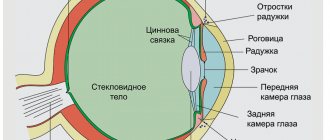Why is it important to start treatment in a timely manner?
Cognitive impairment has three degrees of severity. In the initial stages they cause minor discomfort, but in the later stages they significantly worsen the quality of life.
- Mild violations. With mild cognitive impairment, concentration decreases, memory deteriorates slightly, and the patient quickly gets tired during certain types of intellectual activity.
- Moderate. Memory deteriorates more severely, and lapses may occur. Patients forget some events in life, the way home.
- Heavy. The patient cannot take care of himself, is disoriented in time, does not remember recent events, and forgets his home address. Sometimes patients suffer from hallucinations, delirium, and urinary incontinence.
To prevent the development of severe symptoms, it is important to consult a doctor promptly and begin treatment.
COGNITIVE DISORDERS
Cognitive personality disorders are specific disorders that occur in the cognitive sphere of an individual and include the following symptoms: decreased memory, intellectual performance and a decrease in other cognitive processes of the brain in comparison with the personal norm (baseline) of each individual. Cognitive or cognitive functions are the most complex processes occurring in the brain. With the help of these processes, a rational comprehension of the surrounding world, interrelation and interaction with it, characterized by purposefulness, is carried out.
Cognitive functions include: perception (reception) of information, processing and analysis of data, their memorization and subsequent storage, data exchange, development and implementation of an action plan. The causes of cognitive disorders can be many ailments that differ in the mechanisms and conditions of occurrence and course of the disease.
CAUSES OF COGNITIVE DISORDERS
Cognitive impairments are functional and organic in nature. Functional disorders in the cognitive sphere are formed in the absence of direct brain damage. Overwork, stress and constant overexertion, negative emotions - all this can be the cause of functional cognitive disorders. Functional cognitive disorders can develop at any age. Such disorders are not considered dangerous and always disappear or their manifestations are significantly reduced after the cause of the disorders is eliminated. However, in some cases, drug therapy may be required.
Organic conditions in the cognitive domain arise from brain damage resulting from disease. They are more often observed in older people and usually have more stable features. However, proper therapy even in these cases helps to achieve improvement in the condition and prevents the increase in disorders in the future.
The most common causes of organic pathologies in the cognitive sphere are: insufficient blood supply to the brain and age-related decrease in brain mass or atrophy.
Insufficient blood supply to the brain can occur due to hypertension, cardiovascular pathology and strokes. Therefore, timely diagnosis of these diseases and their correct treatment are very important. Otherwise, serious complications may occur. Blood pressure, maintaining normal blood sugar and cholesterol levels should be given special attention. There are also vascular cognitive disorders that develop as a result of chronic cerebral ischemia, repeated strokes, or a combination thereof. Such pathologies are divided into two options: disorders arising as a result of pathology of small vessels, and disorders resulting from pathology of large vessels. Neuropsychological features of the detected conditions, reflecting their relationship with disruption of the frontal lobes of the brain, will indicate the vascular etiology of cognitive disorders.
Vascular cognitive personality disorders are quite common today in the practice of neurological pathologies.
With brain atrophy, due to age-related changes, more pronounced pathologies of cognitive functions are formed. This pathological condition is called Alzheimer's disease and is considered a progressive disease. However, the rate of growth of pathologies in the cognitive sphere can vary significantly. Mostly, symptoms are characterized by a slow increase, as a result of which patients can maintain independence and independence for many years. Adequate therapy is of great importance for such patients. Modern methods of therapy help to achieve improvement in the patient’s condition and long-term stabilization of symptoms.
Pathologies in the cognitive sphere can also be caused by other brain diseases, cardiovascular failure, diseases of internal organs, metabolic disorders, alcohol abuse or other poisoning.
SYMPTOMS OF COGNITIVE DISORDERS
Cognitive dysfunction is characterized by specific symptoms, which depend on the severity of the pathological process and which parts of the brain it affects. Damage to individual areas causes impairment of individual cognitive functions, but disorders of several or all functions at once are still more common.
A disorder of cognitive functions causes a decrease in mental performance, memory impairment, difficulty expressing one’s own thoughts or understanding someone else’s speech, and deterioration in concentration. With severe disorders, patients may not complain about anything due to a loss of criticality towards their own condition.
Among cognitive pathologies, the most common symptom is memory impairment. Initially, progressive disturbances arise in remembering recent events, and gradually, distant events. Along with this, mental activity may decrease, thinking may be impaired, as a result of which a person cannot correctly evaluate information, and the ability to generalize data and draw conclusions deteriorates. Another equally common manifestation of cognitive impairment is deterioration in concentration. Individuals with such manifestations find it difficult to maintain vigorous mental activity and concentrate on specific tasks.
The term moderate cognitive personality disorder usually means a disruption of one or more cognitive processes that goes beyond the boundaries of the age norm, but does not reach the severity of dementia. Moderate cognitive impairment is mainly considered a pathological condition, the result of which transformations at this stage are not limited to age-related involutive processes.
According to a number of studies, mild cognitive impairment syndrome is observed in 20% of individuals over 65 years of age. Research also shows that dementia develops in 60% of individuals with this pathology within five years.
Moderate cognitive impairment in 20-30% of cases is stable or slowly progressive, in other words, it does not transform into dementia. Such disorders can go unnoticed by individuals for quite a long time. However, if several symptoms are detected in a short period of time, then it is worth contacting specialists for advice.
The presence of a cognitive disorder is indicated by the following symptoms: difficulties in performing ordinary counting operations, difficulties in repeating information just received, disorientation in an unfamiliar area, difficulties in remembering the names of people new to the environment, obvious difficulties in finding words during normal conversation.
Moderate cognitive disorders, identified in the early phases of their development, can be quite successfully corrected with the help of medications and various psychological techniques.
In order to assess the severity of cognitive impairment, special neuropsychological testing is used, which consists of answering a number of questions and performing certain tasks by the patient. In accordance with the test results, it becomes possible to determine the presence of deviations in certain cognitive functions, as well as their severity. Test tasks can be in the form of simple mathematical operations, such as adding or subtracting, writing something on paper, repeating a few words, identifying objects shown, etc.
DEMENTIA (dementia)
Dementia is a brain condition that results in a gradual decline in thinking ability; in other words, the sharpness of thinking is steadily “dulling.” Dementia most often affects older people - senile dementia (senile dementia) develops. The older we get, the higher our risk of developing dementia. In people aged 65 years, dementia occurs in 5% of cases, and after 80 years - already in every fifth. However, it is very important to understand that dementia is not a normal part of the aging process and should not be confused with the common “forgetfulness of old age.” Remember that the diagnosis of dementia can only be made by a doctor and he also determines the cause of its occurrence.
HOW DOES DEMENTIA MANIFEST?
A person who develops dementia gradually loses the ability to think clearly. His memory is “confused” - in the initial stages he cannot remember events that happened recently, but he very vividly remembers the events of his youth and childhood. Also very characteristic is a decrease in intelligence and poor concentration, which is expressed in the inability to concentrate on anything and complete the planned task to the end. Gradually, a person loses orientation in his surroundings (he ceases to understand where he is, does not recognize his family and friends) and loses the ability to self-service. At the same time, the condition of the body and all its systems often remains satisfactory, which leads to the need for long-term (sometimes lasting for years) care for such a patient.
Changes in his character cause particular concern for caregivers. At first this usually manifests itself as moodiness and irritability, but later the person may become aggressive and try to harm themselves and others. In severe forms of dementia, serious mental impairment is possible.
WHAT ARE THE CAUSES OF DEMENTIA?
Dementia usually has many different causes. Most often it develops due to Alzheimer's disease or due to atherosclerosis of the vessels supplying blood to the brain.
- Alzheimer's disease is the most common cause of dementia (more than 60% of cases). In Alzheimer's disease, the brain is damaged for some unknown reason and the amount of nervous tissue in it, through which thinking occurs, decreases.
- Vascular dementia is the second most common cause of dementia after Alzheimer's disease (about 20% of cases). In this situation, dementia develops as a result of blockage of many small vessels that supply our brain, and as a result, damage to the nervous tissue occurs.
- There are other, rarer causes of dementia, such as alcoholic dementia or dementia after severe infectious diseases affecting the brain (for example, syphilis).
HOW QUICKLY DOES DEMENTIA DEVELOP?
As a rule, dementia progresses slowly over several years, the speed of its development depends on the cause of the disease and the individual characteristics of the person. In patients suffering from Alzheimer's disease, the time from mild memory impairment to complete inability to self-care usually takes about 8-10 years, however, we emphasize again that the rate of progression of the disease may vary from person to person.
WHAT IS IMPORTANT TO KNOW ABOUT TREATING DEMENTIA?
— There are medications that slow down the development of the disease. Remember that the choice of medication and its dose depend on many factors and should be selected individually. Dementia needs to be treated as early as possible!
Support and care for a person suffering from dementia is the most important part of treatment, which falls on the patient’s family and friends.
How to diagnose and treat cognitive impairment
- We interview the patient, relatives, examine the patient and conduct neuropsychological tests to determine the condition and make a diagnosis.
- For initial forms of disorders, we prescribe a course of vitamins and amino acids.
- We prescribe neuroprotective drugs that improve cognitive functions, and drugs that affect the cause of the disorder and eliminate it.
- We organize classes with a psychologist and conduct trainings that help improve cognitive functions.
Benefits of treating cognitive impairment with us
- We select treatment individually
. We conduct an examination and collect a medical history. We take into account the state of health, the degree of cognitive impairment, and the presence of concomitant diseases when selecting treatment. - We use proven methods
. We use methods that have undergone clinical trials and have been approved by Russian and international institutes for the quality of medical care. - We accept after relatives apply
. We make an appointment, conduct an examination and begin treatment if relatives contact us and the patient himself does not admit that there is a problem.
We treat anonymously. We do not register with mental health clinics, we do not transmit information about the patient to state regulatory authorities or the employer. We store documents only in the clinic’s archives and maintain their confidentiality.
To consult with our doctor or make an appointment, call or use the feedback form.
Normal brain aging
Postmortem pathological studies indicate that brain mass gradually decreases with age.
This process begins approximately in the third or fourth decade of life. The most pronounced atrophic changes are observed in the frontal lobes of the brain, postcentral and superior temporal gyrus, and visual cortex. In these formations, the degree of neuronal loss by 70–80 years can reach 32–48%. A reflection of age-related cerebral atrophy is the expansion of the ventricular system and subarachnoid spaces, which is often detected on computed tomography (CT) or magnetic resonance imaging (MRI) of the brain in elderly people.
Significant morphological and neurochemical changes are also observed in the subcortical basal ganglia: striatum, amygdala, substantia nigra, locus coeruleus, cranial nerve nuclei in the brain stem. In the substantia nigra and locus coeruleus, by the ninth to tenth decade of life, the number of neurons decreases by 30–50% compared to the end of the second decade of life. As is known, the substantia nigra and locus coeruleus are key subcortical formations for the ascending dopaminergic and noradrenergic systems. Therefore, morphological changes in these structures lead to mild functional deficiency of these neurotransmitter systems. With age, the activity of the acetylcholinergic, GABAergic, and possibly glutamatergic neurotransmitter systems also decreases.
Aging is accompanied not only by a decrease in the number of neurons in cerebral formations key to cognitive activity, but also by changes in the functional properties of the remaining neurons. A number of studies have shown a decrease in the number of dendrites and synapses between neurons with age. Certain changes also occur in the white matter, where partial demyelination is noted, mainly in the anterior parts of the brain, and a decrease in the number of gliocytes. Atherosclerotic and arteriosclerotic changes in cerebral vessels are very common in old age, which are detected in most people over 65 years of age. It has been shown that the perforating arteries supplying blood to the basal ganglia are most affected.






